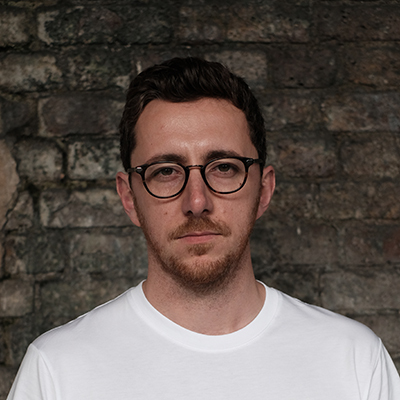Researchers in the US may have discovered why some babies have a stronger fear response than others, and the results could offer new clues in the development of mental health conditions. The short version: it's all in the gut.
In a pilot study at Michigan State University, researchers observed the reactions of 30 infants when a stranger walked into a room wearing a Halloween mask (poor kids). Then they cross-referenced the results with analyses of the baby's microbiome, the huge community of micro-organisms that we all have living in our guts.
They found that children with a heightened fear response were more likely to have certain types of bacteria. Children with an uneven microbiome – one dominated by a specific kind of bacteria – were also more likely to develop a stronger response.
We should add that the children's parents were in the room with them when the masked intruder appeared. Although the results will need validating with larger studies, their responses have genuine scientific value, too.
Read more about the microbiome:
- 15 tips to boost your gut microbiome
- Should we be paying more attention to our poo?
- Psychobiotics: your gut and mental health
Not only can fear response in early life help to predict future mental health, researchers are beginning to piece together a wider relationship between gut health and psychological wellbeing. It's hoped the new research could lead to new ways of monitoring and supporting healthy neurological development.
"This early developmental period is a time of tremendous opportunity for promoting healthy brain development," said Rebecca Knickmeyer, who led the research, published in the journal Nature Communications."The microbiome is an exciting new target that can be potentially used for that."
Knickmeyer was inspired by similar research conducted in animals, and said that there may be great value in better understanding this kind of response in children.
"Fear reactions are a normal part of child development," she said. "Children should be aware of threats in their environment and be ready to respond to them. But if they can't dampen that response when they're safe, they may be at heightened risk to develop anxiety and depression later on in life."
Q&A: Are babies borbn with a sense of right and wrong?
Asked by: Luc Wallace, Canterbury
Early theorists in psychology mainly took the approach that babies are born without any sense of morality and have to learn it as they get older. We now know that although a fully developed sense of morality does not emerge until adolescence or later, babies already show signs of a rudimentary moral compass.
Consider a 2010 study by researchers at Yale University that involved babies as young as three months old watching a live ‘show’ of different shaped wooden blocks on a hill (the shapes corresponded to different characters, who either helped or hindered another character who was struggling to get up the hill). The researchers found that the babies preferred looking at the helpful characters, suggesting early preference for altruistic social behaviour.
Similar research with five-month-olds has shown that they have a sense of ‘justified retribution’: they prefer characters who hinder a previously obstructive individual rather than help them.
A sense of fairness also emerges early. In a study last year by researchers at the University of Washington, 13-month-old babies watched a researcher who distributed crackers fairly or unfairly among two other adults. When the infants were given a chance to interact with the researcher, they were more inclined to interact with a fair researcher than an unfair one, indicating that they had a preference for fairness.
Finally, a cute line of research has looked at babies’ inclination to respond to the needs of others, showing that already by age one they will offer comfort to a person who has hurt themselves, or try to help someone obtain an item that’s out of reach. The spontaneity of these behaviours has led scientists to believe that a sense of right and wrong is not entirely learned, but rather indicative of an evolved predisposition towards moral goodness.
